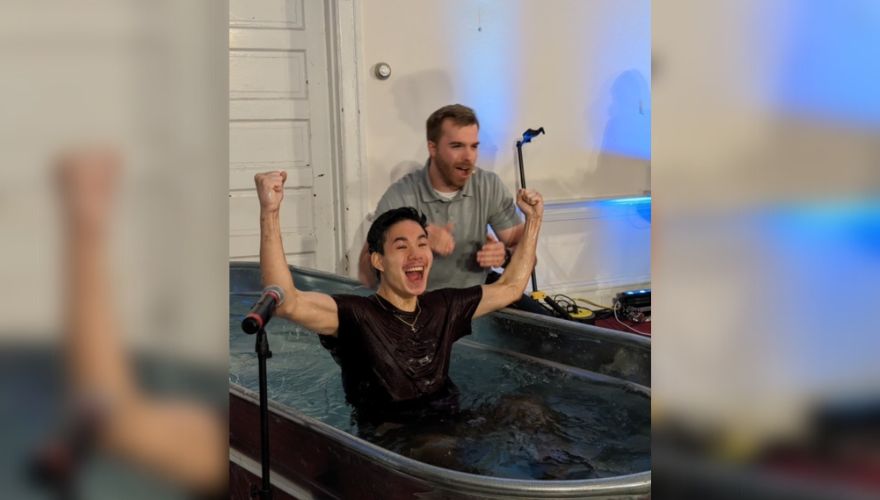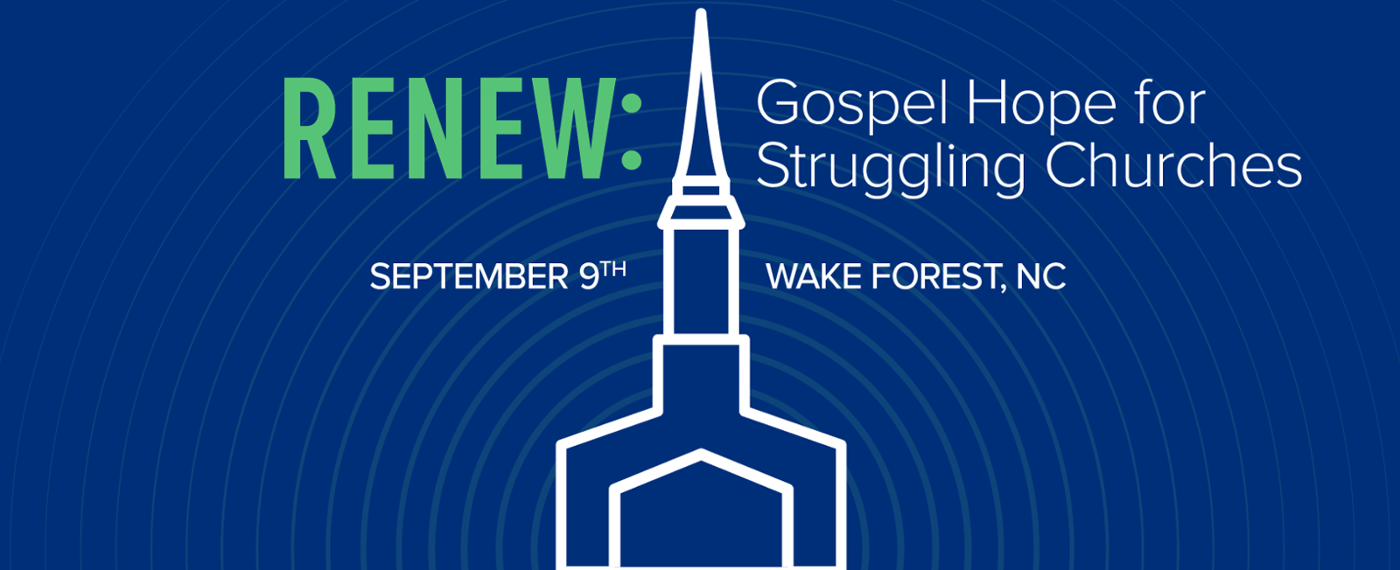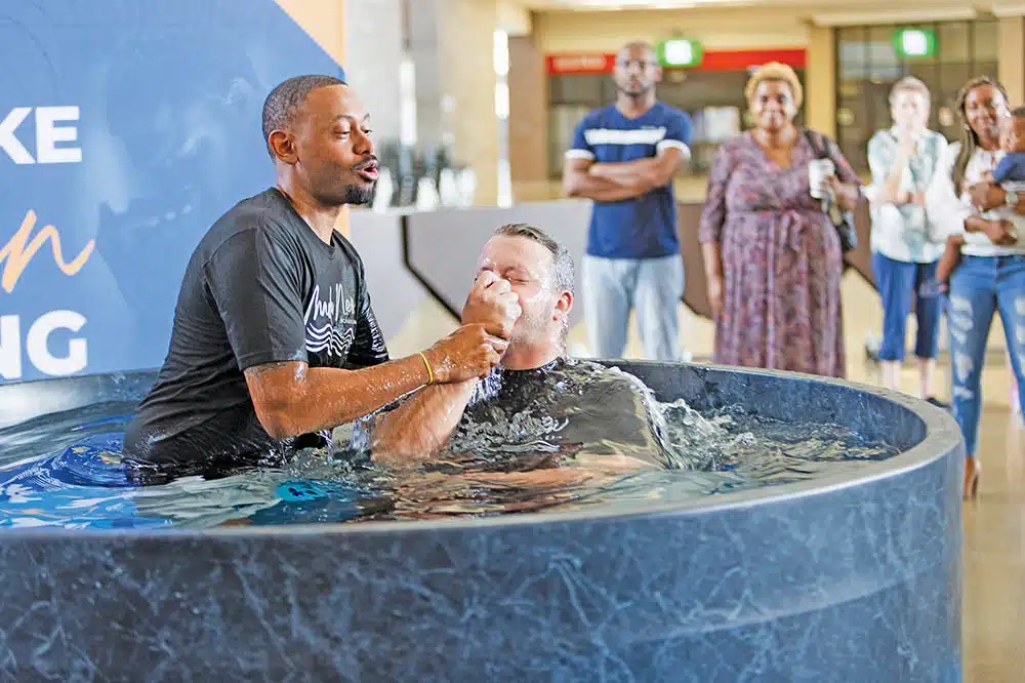
David Domalski, college ministry director at Steel City Church in Pittsburgh, Pa., baptizes a new believer. Domalski's experience as a GenSend missionary was foundational in his ministry journey.
NASHVILLE (BP) – As the North American Mission Board’s (NAMB) GenSend summer program reaches its 10th anniversary, leaders and alumni are reflecting on the influence it has had in mobilizing college students for Gospel impact.
Steve Turner, NAMB’s director of Next Gen Mobilization, has overseen the GenSend summer program since its launch in 2013.
He said though NAMB has always had summer missions opportunities for college students, the goal with GenSend was to provide a more targeted missions program for students to learn missions principles in NAMB’s Send Cities.
“The focused approach was ‘what would happen if we just put some students out in Send Cities, let them experience church planting in a very focused environment as an immersive learning experience and just see what would happen,’” Turner said.
After a pilot program in 2012, a decision was made to pivot away from traditional summer missions and toward GenSend, which allows college students to send several weeks in one of NAMB’s Send Cities to learn what missions in that city looks like. Students often work closely with a local church plant or Send Relief ministry center.
The program started in 2013 in five cities with a handful of students. Since then, Turner said somewhere between 2,000 and 2,500 college students have participated in GenSend.
Next summer, nearly 40 cities are expected to host teams of GenSend summer missionaries, including some areas which are not Send Cities and do not have a Send Relief Center.
Turner told Baptist Press an unexpected outcome of the program has been the retention rate of GenSenders and their city of service.
Surveys have consistently shown that 20 to 32 percent of GenSend participants indicate that they desire to return to the city in which they served to live full time after graduating college.
GenSend leadership did not expect to have the “capture rate of hearts and minds that we got,” Turner said.
GenSend has taken many forms over the years, but now exists under the Send Network with a “super tight alignment” toward the cause of church planting, he said.
Using a baseball analogy, Turner compared GenSend to a farm system or minor league. If Send Network is the majors for those who are ready to start planting a church, GenSend is the minor leagues or farm system meant to develop potential future church planters. This is his hope for the future of the program.
“We want to build a farm system of disciple makers into the mission field for the harvest,” Turner said. “At SBC in New Orleans at the IMB Sending celebration, one of the young men who was going oversees was a GenSender. … I hope GenSend just becomes ever-growing … building this farm system of life on mission.”
A movement of student mobilization
David Domalski, college ministry director at Steel City Church in Pittsburgh, is one such student whose GenSend service set the direction for his future ministry.
After hearing Turner speak about GenSend while attending South Carolina University, Domalski decided to spend the summer of 2018 as a GenSend missionary in Atlanta.
“The biggest impact that (GenSend) had on me in terms of life transformation, I think that was the first time I had a true missional pair of glasses with which to see the world,” Domalski said.
“It was just a complete paradigm shift with which I saw the world, and that had a big impact on me heading back to college. Walking in between classes I just would see hundreds of my classmates and peers and my heart was broken really for the first time. I don’t know where these students’ souls are going for eternity. I was just pressed to pray for them.”
The next summer, Domalski would sign up for GenSend again, this time in Pittsburgh. By day three, he realized a few weeks in the city was not going to be long enough.
Before long, he moved to Pittsburgh to spend two years as a NAMB Journeyman, where he worked closely with the Send Relief Ministry Center there and eventually became a GenSend coach for the team of college missionaries in 2021.
After his term as a Journeyman ended, he joined Steel City Church’s staff in his current role. He hopes to help local college students “catch the vision” for living life on mission.
“I think my whole college experience can be described as radical life transformation and spiritual growth, and that is a large part of why I like doing what I do,” Domalski said.
“I don’t want to just collect students into our ministry community, I would ideally eventually love to see them raise up as laborers to their campus and then would love to send them out as seniors.”
Hard work in the Big Easy
A group of students who did GenSend in New Orleans caught a similar vision for reaching the lost.
Only this time, these three students did not join a church plant in the city, they planted one themselves.
Isaac Woodward lived in New Orleans for several years growing up. He began to develop a passion for missions early on, just as long as it wasn’t in New Orleans because he never liked it. But the Lord slowly transformed Woodward’s heart.
After going away to attend Mississippi College, Woodward returned to New Orleans after his freshman year in the summer of 2016 and served as a GenSend student mobilizer who recruited students for the program. During that summer, his team explored models of what church planting could look like in greater New Orleans.
“I don’t want to say I knew 100 percent, but I was really feeling strongly that the Lord was probably calling me to plant a church in New Orleans and started to sort of orient my life in that direction,” Woodward said.
Upon returning to college in Mississippi, Woodward met Isaac Bowlin and Dillon Hunt, and the three built a friendship based upon a shared love of discipleship and ministry. The next summer, Bowlin and Hunt participated in GenSend.
After their graduations, the three planted The Church in Michoud (an area east of New Orleans) in 2022.
Woodward now says this principles they learned in GenSend have been invaluable to their ministry.
“GenSend really exposes you in a very deep way to communities in the city,” he said.
“I think that was a really big thing. God showing us New Orleans. It showed me the power of people working together to accomplish a common mission. I experienced a level of cooperation to advance the Gospel and the Kingdom that I don’t really know that I had previously experienced in my life. There’s nothing like the connection that comes from working together to accomplish something eternal. When you’re working with someone to accomplish something really significant and really hard, that really draws you closer together.”
(EDITOR’S NOTE – Timothy Cockes is a Baptist Press staff writer.)


